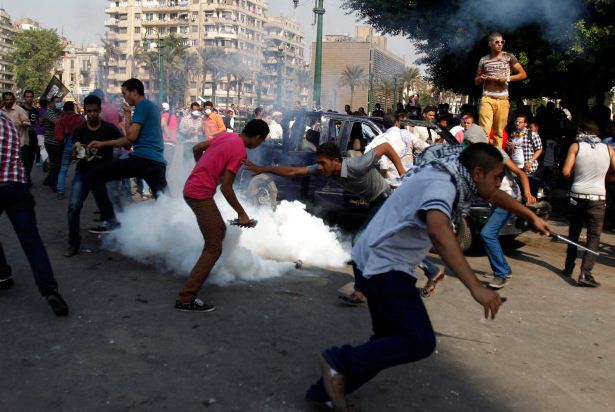Published: 7 February 2013
Region: MENA
by Aidan White
 Bloodshed in Libya, civil war in Syria and a toxic mix of sectarianism and political deadlock in Tunisia and Egypt have taken the shine off the Arab Spring, particularly for many people in journalism and news media.
Bloodshed in Libya, civil war in Syria and a toxic mix of sectarianism and political deadlock in Tunisia and Egypt have taken the shine off the Arab Spring, particularly for many people in journalism and news media.

The pace of change has slowed dramatically since December 2011, when demonstrations, protests and unprecedented expression of people power in Tunisia first ignited demands for democratic reform across the Middle East and North Africa.
But there are still reasons to be cheerful. Journalists and media leaders including publishers, editors, and experts from a number of Maghreb countries met last month in Tunisia determined to inject fresh life into the movement for media reform.
They adopted a plan of action – the Hammamet Declaration – which aims to target hate speech, sectarianism and undue political pressure on media.
Among their proposals is the adoption of a code of ethics for journalism, which will be important to strengthen public credibility. They also aim to establish an observatory to monitor media performance and they plan to create a working professional network across the Maghreb to improve the economic, social and professional conditions in which journalists work.
It’s a brave undertaking but one unlikely to succeed unless governments play their part. Over the years similar initiatives have foundered because of a lack of political will from regional governments to protect journalists and independent media from interference and harassment. Governments themselves are often guilty of legal intimidation of their media critics.
Not surprisingly, the meeting called for the repeal of laws that are used to intimidate and jail journalists. Instead they want a new legal environment to provide some degree of professional protection for media as well as access to information for the public at large.
For all the talk of democracy over the last months, journalists have still been targeted by the authorities and promises of new cutting-edge legislation to create independent public service media and to protect free speech have stalled in parliaments as parties jostle for positions of power.
Conflicts in Gaza, Syria and Mali, protests over the new Egyptian constitution and widespread rivalry between religious and secular groups over which provides authentic leadership for the Arab Spring all test the ethical capacity of media to be independent and impartial.
Most challenging is the tendency towards hate-speech as unscrupulous politicians and media-savvy religious extremists use media to foment hostility between different religious and ethnic groups.
To emerge from the shadows of political influence and casual manipulation of journalism will require more professional solidarity. Participants in the Hammamet Forum pledged to help Maghreb newspaper publishers to work together around a common programme of support for ethical journalism and fair competition.
The meeting called for media to carve out an independent identity while strengthening the capacity for professional and inclusive journalism. There were demands, too, for improvements in the social status of journalists and for more gender equality by opening up executive jobs in media to women.
The meeting was paid for by the European Union and one key test of whether or not it will leave a lasting impression is whether regional and national media leaders are willing to give the process further support – including financial resources.
Certainly, the decision to nominate 24 January – the date on which the forum signed off on its conclusions – as an annual “professional ethics day” will have more credibility if media themselves show they want to translate the solemn and ringing calls for ethics, decency and moral standards into a meaningful and practical working programme for the media business.
With plans to hold regular meetings already agreed, the participants, including some distinguished editors and media owners, will have an early opportunity to test whether Hammamet Forum really does open up a new chapter in the movement for ethical and inclusive journalism. If it does there is still a chance that the Arab Spring may yet succeed.